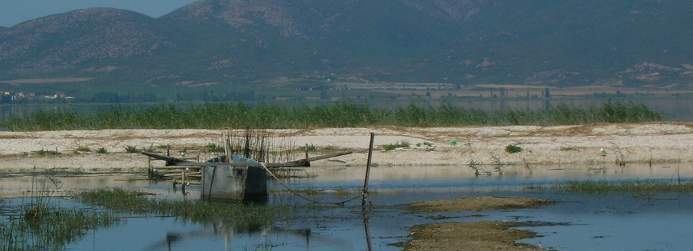If you are interested in accessing articles related to a specific GWP region, please select a region from the left hand side of the page.

Archive
This is the full archive of news articles and reports on GWP activities around the world.

This is the full archive of news articles and reports on GWP activities around the world.
If you are interested in accessing articles related to a specific GWP region, please select a region from the left hand side of the page.
GWP CACENA made the first study of water supply and sanitation in the eight CACENA countries from an IWRM perspective.

Sustainable development requires multi-stakeholder partnerships. That is the message of a new report on water security in Africa published by the Global Water Partnership. (Photo: GWP Executive Secretary Dr Ania Grobicki and Hon Buyelwa P. Sonjica, AMCOW President and Minister of Water and Environmental Affairs in South Africa)

PRESS BRIEFING on Wednesday September 8, 2010 at Stockholm World Water Week, Press Room at 13:00 hrs

Abundant freshwater resources caracterise Cameroon, yet the country faces severe water challenges as a result of management, legal and institutional deficiencies. Due to the fragmented water sector, development in Cameroon goes slowly. To increase the sustainability of water resources management, Cameroon has embarked on a process towards developing integrated water resources management plans.

Located in the Baltic Sea Basin, water quality management is one of the Poland's key issues, creating problems for people’s livelihoods and the environment. Due to year-to-year variability in its water resources, devastating floods and local water scarcities are frequent.

Key challenges in Central Asia are the degradation of ecosystems and increasing water deficiency. It is a region of scarce water resources, many of which cut across national borders. The intensive use of the limited resources leads to conflicts of interest, making transboundary water resources management crucial to the sustainability of the region’s resources.

Benin in West Africa belongs to the group of Least Developed Countries (LDC) with a low per capita GDP. Its economy is predominantly dependant on subsistence farming (extensive cotton production) and regional trade. The country is drained by a dense hydrographical network made up of seasonal flow rivers and less than 3% of its renewable water resources are currently used.
Building on the adoption of new water laws by Kazakhstan in 2003, Armenia in 2007 and Uzbekistan in 2009, GWP Central Asia and Caucasus (CACENA) pressed on to help put laws into practice.

While Pakistan endures one of the country’s most devastating floods—possibly its worst ever—GWP Pakistan is joining with others to help provide relief and rehabilitation to remote communities that have been particularly hard-hit. In addition, the GWP Partner Hisaar Foundation and the Karachi Water Partnership, has launched an appeal to raise Rs 10 million for immediate flood relief, largely for the provision of safe drinking water.
At the June 2010 meeting of the African Minister’s Council on Water (AMCOW) GWP's work for advancing the water agenda on the continent was recognised. The AMCOW Technical Advisory Committee (TAC) appreciated GWP's contribution and gave GWP an additional mandate to work in four key areas: